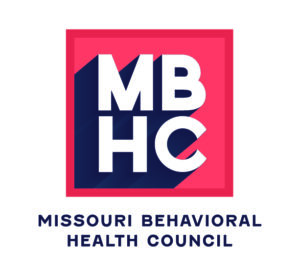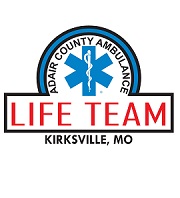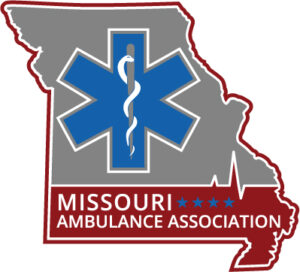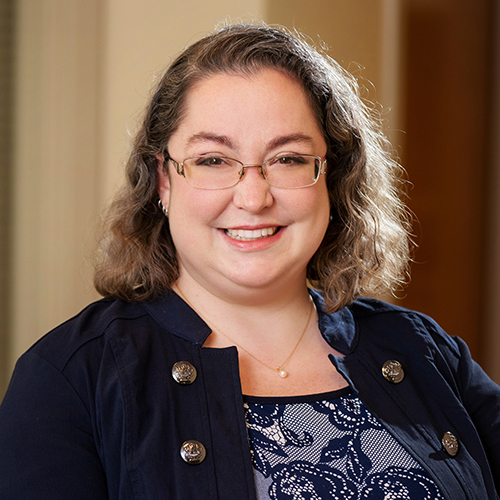Session 1 — Thursday, May 9
Noon to 1 p.m. — 988 and Access Crisis Information
Session Overview
Missouri established the 988 system to provide free and confidential support to people in crisis — for any reason, at any time — 24 hours a day. Trained crisis specialists offer nonjudgmental support to anyone struggling with thoughts of suicide or other crises, and connects them with community support. Emergency medical services access the 988 lines for in-the-field evaluation of people experiencing a mental health crisis. Hospitals also can utilize 988 for support when evaluating and connecting individuals with services. Attendees at this session will learn how the 988 system is structured; how 988 differs from the Access Crisis Response system; how the system connects individuals to law enforcement, EMS, community support and hospitals; and how the hotline’s expertise can be used to care for patients.
Session 2 — Thursday, May 23
Noon to 1 p.m. — Missouri Crisis Intervention Team Program
Session Overview
The Missouri Crisis Intervention Team program is a network of crisis intervention trainers, Community Behavioral Health Liaisons, state agencies and people with lived experience who are working to address structural barriers and advocate for policy and legislative changes to support the health and wellness of those living with behavioral health challenges. In addition to regular regional meetings, they oversee CIT curriculum, training, expansion and program implementation. In this session, attendees will learn about the CIT curriculum and how it impacts interactions with local law enforcement and emergency medical services, how hospitals can integrate the training to reduce negative interactions with behavioral health patients, and how to support local CBHLs and training efforts.
Session 3 — Thursday, June 6
9 to 10 a.m. — Understanding EMS Transport of Behavioral Health Patients
Session Overview
Emergency Medical Services is the primary route of transportation for behavioral health patients traveling to and between hospitals. Missouri statute sets certain requirements for EMS providers regarding the transport of these patients. Additionally, Behavioral Health Crisis Centers are beginning to provide a level of care once sought in the emergency department. With new funding opportunities and regulatory flexibilities emerging, EMS providers may be transporting behavioral health patients to locations other than hospitals. The speaker will inform hospitals on Missouri laws and regulation impacting the transport of behavioral health patients, and how hospitals can collaborate with EMS providers to reduce transport barriers.
Session 4 — Thursday, June 20
Noon to 1 p.m. — Understanding the Sea of Behavioral Health and Developmental Disability Services and Roles
Session Overview
A growing number of new roles and programs have developed across the state to provide support to individuals with behavioral health and substance use disorders. Attendees of this session will receive an overview of available programs and roles engaged in delivering and coordinating care provided through the Missouri Department of Mental Health and Missouri Behavioral Health Council. Hospital staff will learn about Community Behavioral Health Liaisons, Youth Behavioral Health Liaisons, Peer Support Specialists and Community Health Workers. This session also will highlight programs such as Emergency Room Enhancement, Access Crisis Intervention, Mobile Crisis Response, DMH-Developmental Disability services and more. This session will set the stage for a more in-depth dive into the individual programs and support roles. You won’t want to miss this!
Session 5 — Thursday, July 11
Noon to 1 p.m. — Emergency Room Enhancement Program
Session Overview
Across Missouri, health care professionals have seen an increase in patients seeking help for psychiatric conditions and substance use disorders. Many times, these individuals are uninsured or underinsured and end up in hospital emergency departments, where they are stabilized and released without being referred to the services they need for follow-up care. As a result, they may end up returning to the ED for additional treatment. To address this gap, the Missouri Department of Mental Health has implemented the Emergency Room Enhancement program. ERE now is available in all 114 Missouri counties, serving 100% of Missourians and hospitals. In this session, participants will learn how the program works, who should be referred and what benefit the program can have on unnecessary ED visits.
Session 6 — Thursday, July 25
Noon to 1 p.m. — Upstream Youth Mapping Collaboration Project
Upstream is a community-based approach modeled from the Missouri Statewide Sequential Intercept Model initiative that leverages court resources, judicial leadership, and child welfare and juvenile justice agency partnerships to enhance community collaboration through state and local coordination, community mapping and action planning. This collaboration aims to strengthen communities, prevent child maltreatment and out-of-home placement, reduce court involvement, and support safe and healthy families. Hospital staff are increasingly seeing children who are at an intersection between child welfare, parents or guardians, residential services and law enforcement serving as a safe haven, while other entities decide how to move the child forward in the community. In this session, attendees will learn about the importance of hospital engagement during the mapping process to provide a health care perspective and help shape future support programs.
Session 7 — Thursday, August 8
Noon to 1 p.m. — Statewide Sequential Intercept Model Collaboration Project
Session Overview
The Missouri Statewide Sequential Intercept Model is a collaborative project to improve the availability, accessibility, and awareness of resources and services in our communities. The collaboration brings together mental health professions, law enforcement, courts, emergency medical services, community providers and hospitals to conduct SIM mapping workshops in every county and judicial circuit in Missouri through April 2025. The project utilizes the SIM tool in strategic planning to assess available resources, identify gaps and challenges in accessing services, and establish a plan for community change. Attendees in this session will learn what mapping is performed, what can be done with the information resulting from the project and why hospitals should be involved.
Session 8 — Thursday, August 22
Noon to 1 p.m. — Behavioral Health and Intellectual/Developmental Disability (BHIDD) Program
Session Overview
The Missouri Department of Mental Health and Missouri Behavioral Health Council have developed a new collaboration that focuses solely on the individual with developmental disabilities. Participants of this session will learn about the new dual diagnosis beds at Fulton State Hospital, the Hospitals and Community Crisis Program, the new pilot stabilization program, and more. These new programs and services specifically are aimed at reducing unnecessary hospitalization and subsequent boarding in hospitals.














